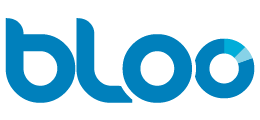
Online survey Senegal: a powerful tool for businesses
Online survey Senegal: What impact for business development?
An online survey is a device for collecting and processing
responses to a questionnaire accessible via the web. This
questionnaire can be used to measure satisfaction, consumer
habits (for example, as part of a market study), or the
opinions of respondents.

Online surveys have several advantages for companies in Senegal.
They allow :
– Reach a large audience at a low cost and quickly
– To collect reliable and easily exploitable data
– Adapt to the needs and preferences of respondents
– Strengthen the relationship with customers and prospects
Online surveys are therefore a valuable tool for business
development in Senegal. They can better know their market, their
competitors and their customers.
The benefits of online surveys for businesses in Senegal
Online surveys have become an indispensable tool for companies.
Especially when they want to collect information about their
market, their customers or their employees.
These surveys have many advantages over traditional surveys
conducted at home, by telephone or by mail. Here are the main
ones:
– Save time and money: online surveys reduce
considerably the costs associated with the design,
dissemination and processing of the questionnaires.
They also save time by automating all the steps and avoiding
travel or phone calls.
– Ease o f access and dissemination: online surveys
can be easily accessed from any device connected to the
internet (computer, smartphone, tablet).
They can also be distributed through different channels (e-mail,
social networks, website) and reach a large and geographically
dispersed audience.
– Possibility of collect from data reliable
and
relevant: online surveys offer greater objectivity for the
respondent, who is not influenced by the interviewer.
They also make it possible to control the quality of responses by
avoiding duplicates, data entry errors or incomplete responses4.
– Adaptation to the specific needs of companies: the
Online surveys offer great flexibility in the choice of
questionnaire type (closed, open, mixed), administration
mode (self-administered, assisted) or question format (text,
image, video).
They also allow you to customize the design of the questionnaire
to reflect your company’s brand image.
Online surveys are therefore an efficient and economical way for
companies in Senegal to collect useful data for their development.
They allow them to improve their knowledge of the market, to
evaluate the satisfaction and loyalty of their customers, or to
optimize their marketing strategy.
Tools and Methods to conduct an effective online survey in Senegal
To conduct an online survey in Senegal, you need to follow a few
simple and essential steps. First, you must define the objective of
the survey, that is to say what you want to know or measure.
Then, you have to choose the data collection method, i .e. the type
of questionnaire (closed or open), the distribution method (email,
SMS, social networks…) and the software or tool to use.
The tools of a relevant online survey Senegal
There are many online survey tools on the market, offering a
variety of features and more or less affordable rates. Here are
some examples:
– blooapp is a free and innovative tool that offers you
advanced features such as design customization, contact
management, results analysis and data protection.
– HubSpot: it is an online survey tool that allows you to
create questionnaires quickly and easily thanks to the pre-existing templates and its intuitive interface in French.
– SurveyMonkey: This is a popular online survey tool that
offers a variety of paid packages depending on the
number of questions, thenumber of respondents and
the desired features.
– LimeSurvey: it’s an open source online survey tool
which can be installed on its own server or used via a hosted
platform.
In order to design a clear and attractive questionnaire, a few
simple rules must be followed:
– Start by clearly defining your objectives: what
What information do you want to collect and why? This
will help you choose the right questions and avoid
unnecessary questions.
– Contextualize always your questionnaire :
Present the purpose of the survey, the name of the
sponsor, the estimated duration, the terms of
participation and the confidentiality of the data. This
will allow you to establish a relationship of trust with
your respondents.
– Be as concise as possible: limit the number of
questions (between 10 and 20 maximum) and the
length of the text (no more than one sentence per
question). This will allow you to prevent your
respondents from getting bored or giving up.
– Write the questions precisely: use
simple, clear vocabulary that is adapted to your target
audience. Avoid technical terms, acronyms or
ambiguities. This will allow you to obtain reliable and
consistent answers.
– Do not direct your questions: do not suggest the
Do not ask two questions in one, and do not offer too
many or too few options in your multiple choices. This
will help you avoid bias in your results.
The methodology to be used in a digital survey
First, choosing a representative sample, you need to define your
target population (who are the people you want to interview?)
and your sampling method (how will you select the
respondents?).
There are two broad categories of sampling methods:
random (or probability) sampling, which involves drawing
respondents at random from the target population, and non-random (or non-probability) sampling, which involves selecting
respondents according to predefined criteria.
Random sampling ensures a more representative sample, but
requires a comprehensive list of the target population. Non-random sampling is easier to implement, but it presents a risk of
bias in the selection of respondents.
Second, to analyze the results of your online survey, you need to
use statistical tools that are appropriate for the type of data you
have collected. There are two main types of data:
Examples of surveys at
online surveys
On the one hand, quantitative data, which are measurable
numerical data (e.g. number of sales, satisfaction rate, age of
respondents).
On the other hand, qualitative data, which are textual or visual
data expressing opinions or feelings (e.g. free comments,
emoticons, images).
Quantitative data are suitable for descriptive (e.g., calculation of
mean, percentage, mode) or inferential (e.g., hypothesis testing,
analysis of variance, linear regression) statistical analyses.
Qualitative data lends itself to thematic (e.g., coding,
categorization, interpretation) or visual (e.g., word cloud, Venn
diagram, mind map) analysis.
Examples of surveys in Senegal
Online surveys are a powerful tool for companies that want to
know the needs, expectations and opinions of their customers,
employees or partners.
They allow you to collect reliable and usable data in a few
minutes, at a low cost and with great ease.
In Senegal, several examples of successful online surveys
demonstrate the interest and effectiveness of this method to
improve the performance or strategy of companies.
• For example, the National Union of Merchants
and Industrialists of Senegal
(Unacois/Jappo) conducted a study on the
economic situation of the country.
The objective was to measure the impact of political and social
tensions on business and industrial activity. The survey was
conducted online with a representative sample of 500
Unacois/Jappo members.
The results showed that 80% of respondents were dissatisfied
with the business climate and that 70% had experienced a drop in
sales. The survey allowed Unacois/Jappo to make its voice heard
by the public authorities and to propose solutions to revive the
economy.
• Another example of a successful online survey
is that of AfriKSurvey, a firm specializing in market
research, marketing surveys and opinion polls in
Africa.
This firm helps companies and institutions working in Africa to
better understand their markets and targets. It uses innovative
tools such as Google Forms to create personalized online forms
adapted to the specific needs of each client.
For example, he conducted an online survey for an agribusiness
company that wanted to assess the satisfaction of its consumers in
Senegal. The survey focused on product quality, price, availability,
loyalty and suggestions for improvement.
The survey provided the company with valuable information to
optimize its offering and strengthen its market position.
These examples show that online surveys are an effective way for
companies in Senegal to :
collect relevant data, know their environment, adapt to the needs
and expectations of their customers, employees or partners, and
improve their performance or strategy.
In summary
You have seen in this article how online surveys can help you to
better know your customers, employees or partners, to measure
their satisfaction or opinion, and to improve your performance or
strategy.
Online surveys are a powerful, fast and cost-effective tool for
collecting reliable and actionable data. In Senegal, many
companies have already adopted this method and obtained
convincing results.
If you also want to take advantage of the benefits of online surveys
for the development of your business in Senegal, do not wait any
longer! Test now a free tool like blooapp that allows you to easily
create online surveys customized to your needs.
You can also contact one of our experts who will be able to assist
you in the realization of your market research, marketing surveys
or opinion polls.



Leave a Reply